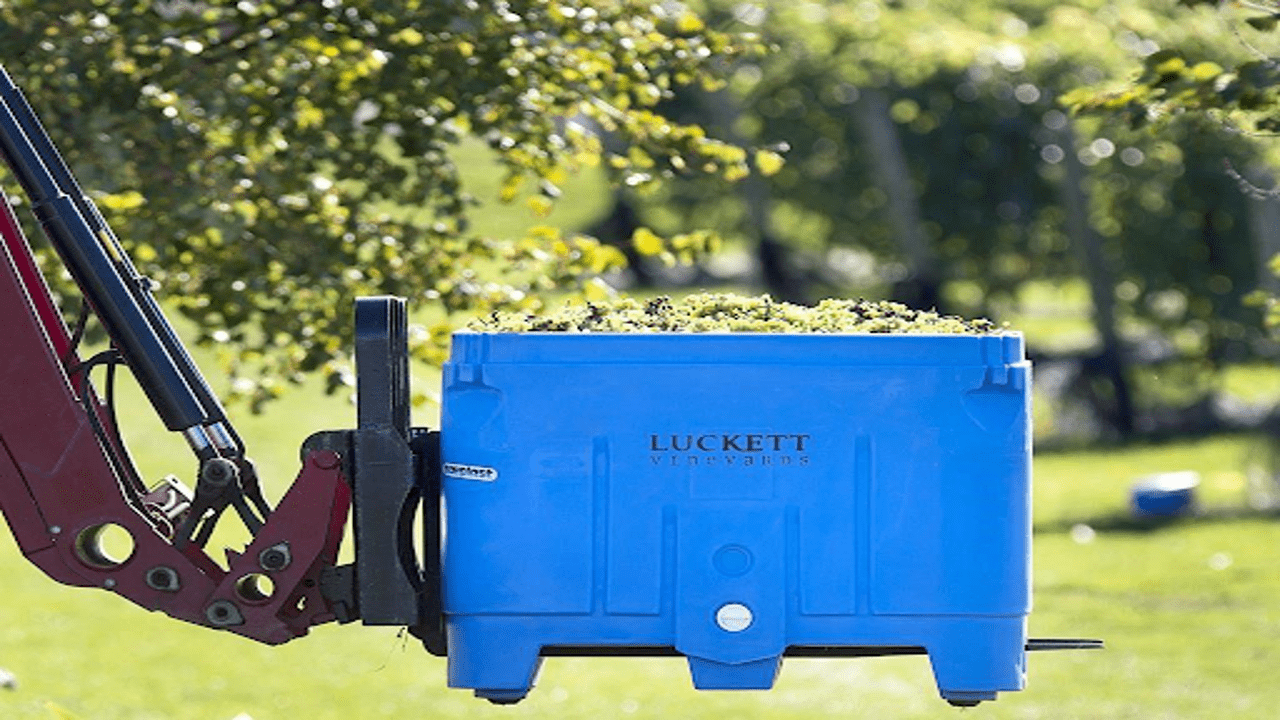
A bin of grapes is carted away at the vineyard in Wallbrook, N.S., on Oct. 19, 2017. THE CANADIAN PRESS/Andrew Vaughan
Nova Scotia's wine industry could still receive extra financial support, despite grape growers rejecting the proposal earlier this week, according to provincial officials.
During a Thursday briefing, Finance Department representatives explained that the offer made to an industry working group last week is fair and aligns with international trade rules.
“We believe it's reasonable and based on solid evidence from our consultant,” said associate deputy minister Lilani Kumaranayake, citing an independent report by Acadia University professors Donna Sears and Terrance Weatherbee.
The proposal would add $1.6 million to the existing funding for wineries and grape growers, raising the total to $6.6 million annually. Additionally, the province’s two commercial wine bottlers would each receive up to $1 million per year.
However, winemakers argue that subsidies for bottlers are unfair, as they allow bottlers to import cheaper grape juice, undercutting locally made wine.
The department stated that the funding is split 65-35 percent between wineries and bottlers, reflecting their contribution to the economy and the Nova Scotia Liquor Corporation's purchasing costs.
Kumaranayake also noted that an extra $850,000 was offered to establish a wine authority to regulate the industry and develop a growth plan. She confirmed that the new funding plan won't begin on the proposed October 1 date, as wineries declined the offer, though talks will continue.
“The premier received a letter from the farm wine group rejecting the proposed changes, so for now, things will stay as they are,” Kumaranayake said.
As it stands, funding will remain at $5.05 million per year for wineries and $844,000 for commercial bottlers.
This update follows a letter from working group co-chair Karl Coutinho to Premier Tim Houston earlier this week, in which he resigned, calling the government’s proposal a “huge disappointment” for wineries and grape growers.
Growers and winery owners argue that public funds shouldn’t go to commercial bottlers, as it would subsidize foreign grape juice at the expense of local grape growers.
“We’re not asking for more money; we need the right investment approach,” Coutinho told reporters Thursday. “The proposal offers more money, but it doesn’t address the real issue.”
While the consultant's report recommended offsetting the cost of imported grape juice subsidized by its country of origin, Kumaranayake explained that the province lacks the means to verify those subsidies.
Blomidon Estate Winery's Tim Ramey dismissed the government's reasoning as irrelevant. “Who else subsidizes imported grapes? Where?” he asked. “Nowhere.”















